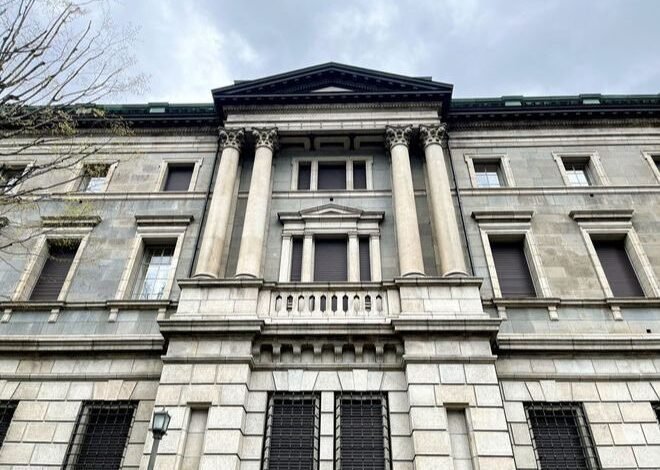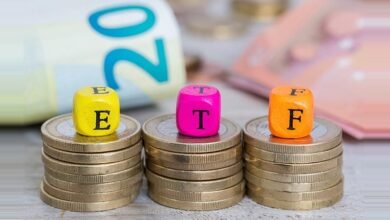BOJ keeps interest rates steady, decides to start selling ETFs

The Bank of Japan kept interest rates steady on Friday but decided to start selling its holdings of risky assets, taking another step forward in phasing out remnants of its massive stimulus program.
Two of the BOJ’s nine board members dissented to the central bank’s decision to keep short-term interest rates at 0.5% and proposed, unsuccessfully, to hike borrowing costs to 0.75%.
At the two-day meeting that ended on Friday, the BOJ decided to sell its holdings of exchange-traded funds (ETF) in the market at an annual pace of around 330 billion yen.
It also decided to sell real-estate investment trusts (REIT) at an annual pace of around 5 billion yen.
“The BOJ decided, by a unanimous vote, to sell these assets to the market in accordance with the fundamental principles for their disposal, which include the principle to avoid inducing destabilizing effects on the financial markets,” the central bank said in a statement.
The benchmark Nikkei index pulled away from its record high and swung into negative territory and the yen and short-term bond yields surged on the decision to sell risky assets and the hawkish dissent.
“The dissent from (Hajime) Takata and (Naoki) Tamura highlights growing hawkish pressure inside the BOJ. While the majority still favour a steady path, the presence of two board members voting against today’s decision suggests the debate is tilting toward quicker normalization,” said Charu Chanana, Chief Investment Strategist at Saxo.
“Their stance underscores a gradual shift in board dynamics that could lend yen some support, especially after the post-Fed declines. The BOJ’s roadmap to wind down ETF/J-REIT holdings signals that asset-purchase support is fading.”
While the BOJ was widely expected to unwind its ETF holdings at some point, the decision to do so came much sooner than the market was predicting.
The BOJ’s meeting followed the U.S. Federal Reserve’s decision on Wednesday to cut interest rates and signal more reductions to halt any slide in an already weakening labor market.
The central bank exited a massive, decade-long stimulus program last year and raised short-term rates to 0.5% in January on the view Japan was on the cusp of sustainably achieving its 2% inflation target.
While Ueda has stressed the bank’s resolve to keep hiking rates, he has vowed to tread cautiously on uncertainty over the impact of U.S. tariffs on Japan’s economy.
A Reuters poll showed a majority of economists expect another 25-basis-point hike by year-end. But those surveyed are split on the timing with bets centering on October and January.
Japan’s core consumer prices rose 2.7% in the year to August, data showed on Friday, slowing for the third straight month but staying above the central bank’s 2% target.
Credit: Source link






